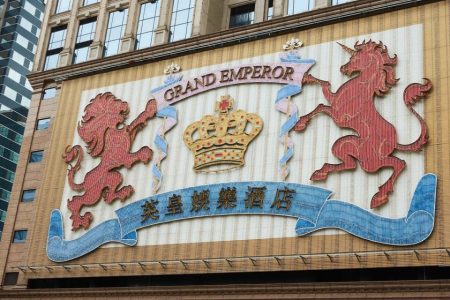Macao is one step closer to getting its first-ever trade union bill, following a brisk debate in the Legislative Assembly yesterday.
Lawmakers passed the outline of the bill, which does not include the right of collective bargaining or workers’ right to strike enshrined in the Macao Basic Law.
During yesterday’s Q&A session in the legislature’s hemicycle, Secretary for Economy and Finance Lei Wai Nong said that Macao’s trade unions could, however, collectively bargain on behalf of their members over fundamental employment conditions.
The outline of the bill was passed with 27 votes in favour and two abstentions. Thirty lawmakers attended yesterday’s plenary session.
New Hope lawmakers José Maria Pereira Coutinho and Che Sai Wang abstained. Both are members of the Macao Civil Servants Association.
Yesterday marked the first time that the legislature has passed a trade union bill. Twelve previous bills – most of them proposed by Coutinho – over the past two decades were always rejected by the legislature.
Macao is the only jurisdiction in China that still does not have a trade union law – unlike the Chinese mainland, Taiwan and Hong Kong.
Lei said that according to the opinions gathered from residents during last year’s public consultation on the bill, there was still no consensus in the community for workers’ right to carry out collective bargaining, adding that the bill should be in line with Macao’s economic development and actual conditions.
“The trade union law should be specific to Macao’s characteristics,” Lei insisted, stressing that workers’ rights such as collective bargaining and industrial action would be promoted gradually in the light of the actual circumstances and overall interests of Macao.
The bill proposes that trade unions may enjoy certain powers and functions, such as negotiating with employers about employment conditions, assisting in the resolution of labour disputes, giving the government suggestions on labour policy legislation and providing occupational training.
According to Lei, in recent years, nearly 93 per cent of Macao’s labour disputes were resolved through the Labour Affairs Bureau or trade organisations, while seven per cent were resolved through the courts, reflecting the fact that labour relations in Macao “have always been harmonious” and that there “has always been a mechanism to coordinate labour disputes very well” – even before the current bill was proposed.
Lei said that the Labour Affairs Bureau would be trade unions’ main supervisory and approval authority if the bill is passed, The Macau Post Daily reported.






